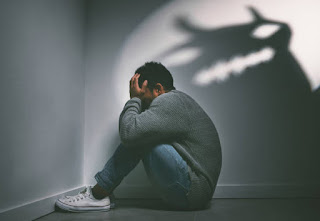Understanding Anxiety: Navigating the Path to Calmness
What is Anxiety?
Anxiety is a natural response to stress, characterized by feelings of worry, fear, or apprehension. It can manifest in various ways, including restlessness, racing thoughts, difficulty concentrating, and physical symptoms like increased heart rate, sweating, or tremors. While some level of anxiety is a normal part of life, when it becomes overwhelming or persistent, it may be considered an anxiety disorder.
The Causes of Anxiety
Anxiety can be triggered by numerous factors, including:
Genetics: Family history of anxiety or other mental health issues can increase the likelihood of experiencing anxiety.
Environmental Factors: Life events, such as trauma, abuse, or significant life changes (like divorce or job loss), can contribute to anxiety.
Health Issues: Chronic illnesses, hormonal changes, or substance abuse can also play a role in developing anxiety.
Personality Traits: Certain personality traits, such as perfectionism or a tendency to avoid conflict, can make individuals more susceptible to anxiety.
Signs and Symptoms of Anxiety Recognizing the signs of anxiety is crucial for addressing it effectively. Common symptoms include:
Persistent worry or fear
Restlessness or feeling on edge
Fatigue
Difficulty concentrating
Irritability
Muscle tension
Sleep disturbances
Effective Strategies for Managing Anxiety
Mindfulness and Meditation: Practicing mindfulness can help ground you in the present moment, reducing anxious thoughts. Consider mindfulness meditation or deep breathing exercises.
Cognitive-Behavioral Therapy (CBT): CBT is an evidence-based approach that helps individuals identify and challenge negative thought patterns associated with anxiety. This technique can be very effective in providing coping strategies.
Regular Physical Activity: Exercise has been shown to decrease anxiety levels. Activities like walking, yoga, or team sports can boost your mood by releasing endorphins.
Healthy Lifestyle Choices: A balanced diet, adequate sleep, and reducing caffeine and alcohol intake can improve overall well-being and decrease anxiety symptoms.
Build a Support System: Sharing your feelings with friends, family, or a therapist can provide relief and help you not feel alone in your struggles.
Set Realistic Goals: Break tasks into manageable steps, allowing you to focus on one thing at a time, which can reduce the feeling of being overwhelmed.
When to Seek Professional Help While the strategies above can help manage anxiety, it's essential to recognize when professional help is needed. If anxiety interferes with your daily activities, relationships, or overall quality of life, consider reaching out to a therapist or counselor for support. At Log Cabin Counseling, I am here to guide you through your journey toward understanding and managing anxiety effectively.
Conclusion
Anxiety can be a challenging experience, but understanding its causes and symptoms can empower you to take steps towards managing it. Remember, you are not alone in this journey. Whether it's sharing your feelings with loved ones or seeking professional guidance, there are ways to navigate anxiety and reclaim your peace of mind. Feel free to explore additional resources on our website or contact us for personalized support.
Call to Action
If you're struggling with anxiety or have questions about managing your mental health, don’t hesitate to reach out for help. At Log Cabin Counseling, we are committed to providing compassionate support tailored to your unique needs. Together, we can work towards a calmer and more fulfilling life.Visit Us: https://logcabincounseling.com/services/



Comments
Post a Comment